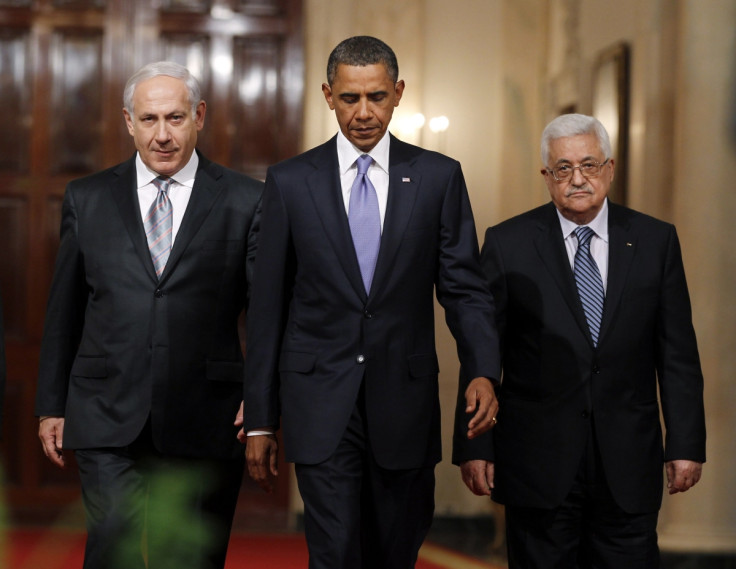Barack Obama: United States Cannot Defend Israel if Middle East Peace Talks Fail

Barack Obama has warned Israeli Prime Minister Benjamin Netanyahu that the United States would not be able to protect Israel from the international consequences of failed Middle East peace talks.
In an interview with Bloomberg, Obama stated that "the window is closing" for a peace deal to be negotiated between Israel and the Palestinians.
"What I do believe is that if you see no peace deal and continued aggressive settlement construction and ... if Palestinians come to believe that the possibility of a contiguous sovereign Palestinian state is no longer within reach, then our ability to manage the international fallout is going to be limited," Obama said.
"There comes a point where you can't manage this anymore, and then you start having to make very difficult choices."
The president said that his message to Netanyahu would be clear and provide a sense of urgency.
"If not now, when? And if not you, Mr. Prime Minister, then who?" Obama said.
Israeli strategic affairs minister Yuval Steinitz disapproved of Obama's choice of words in the interview.
"I didn't like all of the remarks. I think there is no reason to put pressure on Israel," he said in an interview on Israeli radio.
"Netanyahu will, I think, give a clear answer: 'We are ready for peace. We want to advance a diplomatic accord. But we, rightly, worry about and fear for our national security.'"
After criticising Israel's settlement-building across the Green Line, Obama asked what the future character of the Israeli state will be and whether its current strategy is the right course of action.
"Do you resign yourself to what amounts to a permanent occupation of the West Bank?" he asked.
"Is that the character of Israel as a state for a long period of time? Do you perpetuate, over the course of a decade or two decades, more and more restrictive policies in terms of Palestinian movement? Do you place restrictions on Arab Israelis in ways that run counter to Israel's traditions?"
The US President then spoke of Palestinian National Authority President Mahmoud Abbas as someone who could be relied upon to help the progress of peace talks.
"He has proven himself to be somebody who has been committed to nonviolence and diplomatic effort to resolve [the conflict]," he said of Abbas. "We do not know what a successor to Abbas will look like."
© Copyright IBTimes 2025. All rights reserved.






















